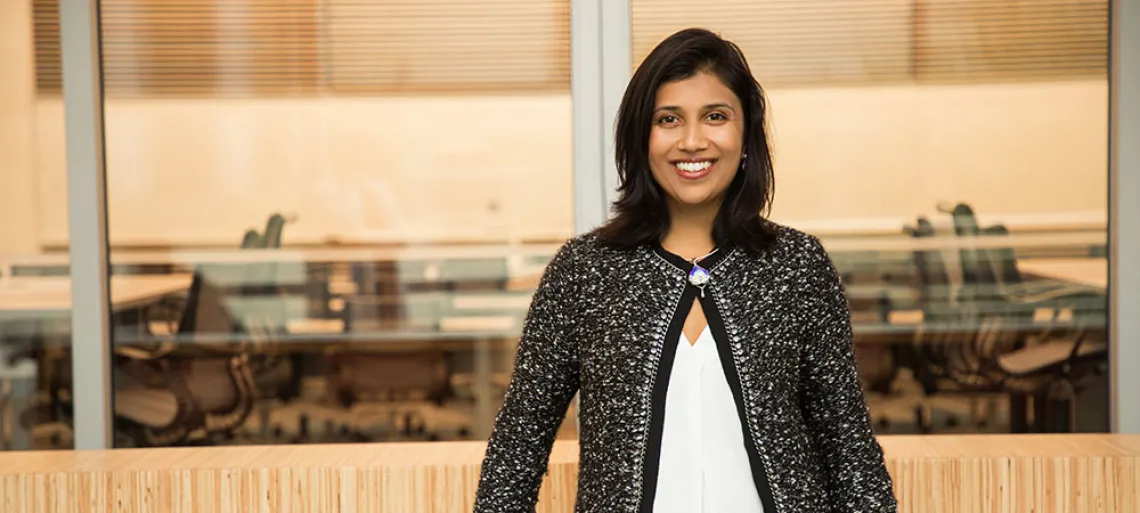Eller Accounting Professor Interviewed on Materiality and Financial Reporting

Preeti Choudhary, associate professor of accounting in the Eller College of Management at the University of Arizona, was interviewed in the August 13 Council of Institutional Investors The Voice of Corporate Governance podcast.
The interview stems from Choudhary’s research, forthcoming in the Journal of Accounting Research, with Kenneth Merkley, Indiana University, and Katherine Schipper, Duke University. The research analyzes data made available through the Public Company Accounting Oversight Board—the private-sector body established to oversee the audits of U.S public companies—to conclude that there is a linkage between higher materiality thresholds used by external auditors and lower financial statement reliability.
“You have to know what is a big number or a meaningful number for this company to determine the level of precision that is needed to audit the company’s recognized and disclosed amounts in financial statements,” she says. Choudhary’s research shows there is much variation in these choices and that higher materiality thresholds imply less audit work and lower fees. This results in lower financial statement reliability for the very highest choices.
“Right now the only tool investors have to evaluate audits is their fees,” she says. “But if they knew materiality values, they might better be able to interpret the precision of the audit. Analyzing audit fees together with materiality amounts may provide a fuller picture of audit effort to investors.” Materiality disclosures should therefore be included in the audit reports of U.S. public companies. Currently, however, there is no such requirement in the U.S.
On October 2, 2019, Choudhary, Merkley and Schipper wrote a blog entry titled "How Do Auditors Determine What's Material?" for the Columbia Law School Sky Blog, stating, "We find that when auditors choose loose materiality values, they identify fewer misstatements in the audit, and among the loosest choices, the propensity to restate is nearly 6 percentage points higher (our sample’s restatement rate is 3 percent). Our research highlights how much variation there is in auditors’ materiality decisions and how such decisions at the start of the audit are important elements that influence financial reporting reliability."
Choudhary, who joined the Eller College in 2017, has also worked as an internal auditor for the Washington Post and in enterprise risk services with Deloitte. Her research focuses on capital markets, financial accounting reliability and auditing, financial reporting for taxes, recognition versus disclosure and financial reporting reliability. She earned her PhD from Duke University.

